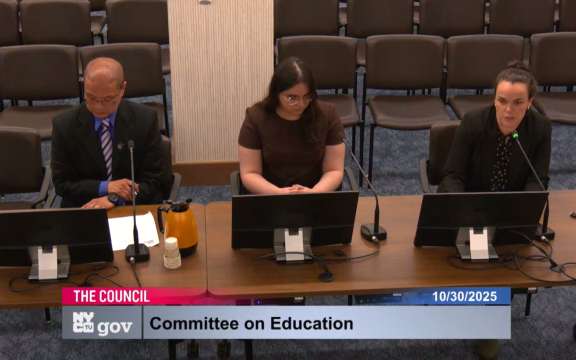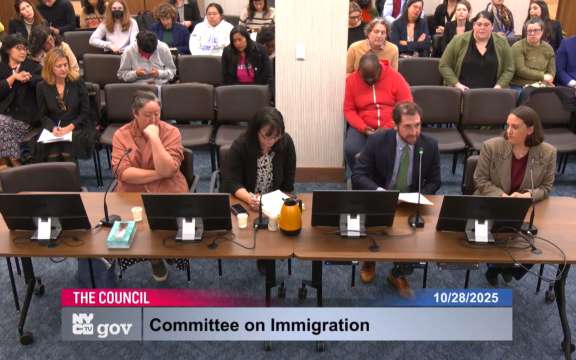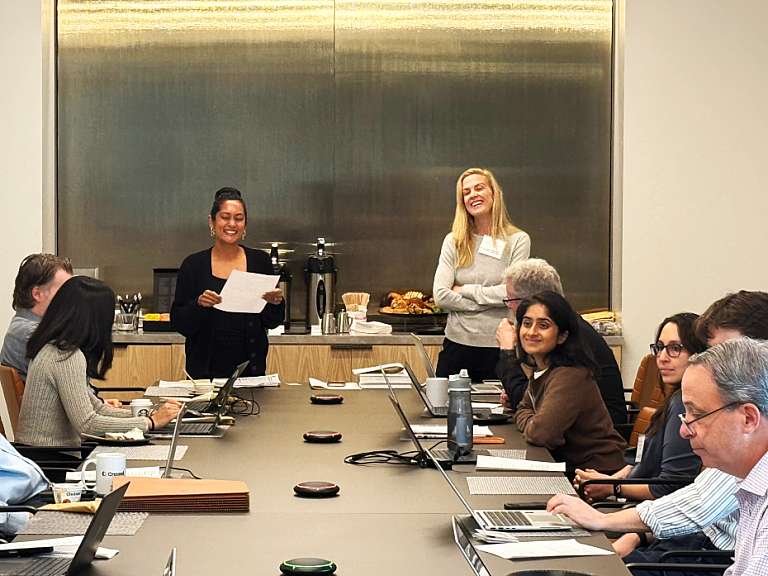BDS Public Comment on Procedures for Asylum and Withholding of Removal; Credible Fear and Reasonable Fear Review (Date Collection Instrument Specifically)
August 14, 2020
Via Electronic Mail to DHSDeskOfficer@omb.eop.gov
Attention: Desk Officer, U.S. Citizenship and Immigration Services, DHS.
Office of Information and Regulatory Affairs
Office of Management and Budget 725 17th Street, NW
Washington, D.C. 20503
Lauren Alder Reid, Assistant Director
Office of Policy, Executive Office for Immigration Review
5107 Leesburg Pike, Suite 1800
Falls Church, VA 22041
Maureen Dunn, Chief
Division of Humanitarian Affairs Office of Policy and Strategy
U.S. Citizenship and Immigration Services
20 Massachusetts Ave. NW
Washington, DC 20529
RE: Collection of Information Notice, OMB Control No. 1615-0067 Procedures for Asylum and Withholding of Removal; Credible Fear and Reasonable Fear Review, 85 Fed. Reg. 36264 (June 15, 2020)EOIR Docket No. 18-0002, A.G. Order No. 4714-2020, RIN 1125-AA94
Dear USCIS Desk Officer, Assistant Director Alder Reid, and Chief Dunn:
Brooklyn Defender Services (“BDS”) submits these comments to the Department of Homeland Security (“DHS”) and the Department of Justice (“DOJ”) (collectively, the “Departments”), as well as the Office of Management and Budget’s (“OMB”) Office of Information and Regulatory Affairs (“OIRA”) regarding the Collection of Information Notice contained within “Procedures for Asylum and Withholding of Removal; Credible Fear and Reasonable Fear Review,” published in 85 Fed. Reg. 36264. See 85 Fed. Reg. at 36290.
BDS is a full-service public defender organization in Brooklyn, New York that provides multi-disciplinary and client-centered criminal defense, family defense, immigration, and civil legal services, along with social work and advocacy support. BDS represents low-income people in nearly 30,000 criminal, family, civil, and immigration proceedings each year. Since 2009, BDS has counseled, advised, or represented more than 15,000 clients in immigration matters including deportation defense, affirmative applications, advisals, and immigration consequence consultations in Brooklyn’s criminal court system. About a quarter of BDS’s criminal defense clients are foreign-born, roughly half of whom are not naturalized citizens and therefore at risk of losing the opportunity to obtain lawful immigration status as a result of criminal or family defense cases. Our criminal-immigration specialists provide support and expertise on thousands of such cases. BDS’s immigration practice represents people in applications for immigration relief, including asylum, before U.S. Citizenship and Immigration Services (“USCIS”), and in removal proceedings in New York’s immigration courts. In addition, BDS is one of three New York Immigrant Family Unity Project providers and has represented more than 1,400 people in detained deportation proceedings since the inception of the program in 2013.
On June 15, 2020, the Departments issued the Notice of Proposed Rulemaking published in 85 Fed. Reg. 36264 (hereinafter, the “Proposed Rule”),1 which included the Collection of Information Notice, 85 Fed. Reg. at 36290, setting forth proposed edits to Form I-589 (hereinafter, the “Proposed Form”) and its accompanying Instructions. As set forth below, BDS strongly opposes the imposition of obstacles to asylum through the implementation of the Proposed Form I-589 and Instructions. The Proposed Form is an exceedingly complicated and laborious document, designed to obscure and undercut legitimate asylum claims. The Proposed Form forces asylum seekers to pare down traumatic experiences and instead, expound on legal standards and concepts. Together with the Proposed Rule, the Proposed Form I-589 and Instructions would allow adjudicators to reject asylum claims without providing individualized determinations, and increase the risk of an application unduly being found frivolous, barring the applicant not only from asylum, but also virtually any other form of immigration relief. The resulting system would elicit inhumane and tragic consequences: turning back asylum seekers to the county where they face persecution simply because they did not properly complete a confusing legal form. Not only is that result inhumane and raises substantial due process concerns, it would also contravene the United States’ international treaty and human rights obligations to provide individuals fleeing harm the opportunity to seek asylum and to abide by non-refoulment principles.2
Additionally, the Departments state that “comments received on the information collection that are intended as comments on the proposed rulemaking rather than those specific to the collection of information will be rejected.” 85 Fed. Reg. at 36264. However, there is significant overlap between the Proposed Form I-589 and the Proposed Rule, as the Departments have implemented the proposed narrow legal definitions associated with asylum into the Proposed Form I-589. As comments on the Proposed Form I-589 will inevitably encompass aspects of the Proposed Rule, comments should not be rejected for this reason.
A. The Proposed Form I-589 and Instructions Facilitate the Rejection of Legitimate Asylum Claims
In their request for comments, the Departments ask if the collection of information in the Proposed Form I-589 is “necessary for the proper performance of the functions of the agency,” “enhance[s] the quality, utility, and clarity of the information to be collected,” and “minimize[s] the burden of the collection of information on those who are to respond.” 85 Fed. Reg. at 36290. The answer to each of those inquiries is clearly no: the Proposed Form and Instructions collect unnecessary information in a manner that is confusing and vague, and which places an enormous burden on both asylum seekers and the legal service organizations representing them.
The Departments have built in the overly restrictive legal standards of the Proposed Rule into the Proposed Form I-589 and accompanying Instructions. Applicants are required on the Proposed Form to set forth the legal standards associated with their claim, rather than focus on the facts underlying the claim. The Proposed Form, inter alia, requires the applicant to list their particular social group (“PSG”), detail why the government in their country of origin could not control the persecutor, explain whether a government official was acting in her “official capacity,” and detail the nexus for their persecution. This level of detail and legal analysis is inappropriate for an administrative form that acts to commence the asylum case and does not constitute the totality of the record. This is particularly true as asylum seekers often complete the Form I-589 pro se and detained, even if they are later able to find legal counsel to assist in developing their claim for the asylum interview or individual hearing before an immigration judge. The one-year filing deadline further pressures applicants to complete the forms quickly, as a breach can result in denial for that reason alone. The Proposed Form’s lack of utility clearly demonstrates that the Departments disregarded these realities of the asylum application process. In addition, the Instructions, which are in English only, contain explanations for legal terms like “acquiescence” and “awareness,” which is problematic because legal definitions may change based on developing case law and application to facts.
Moreover, the Proposed Form buries such questions in dense paragraphs filled with legalese and conditional statements. Simply put, the language of the proposed changes to the Proposed Form and Instructions is exceedingly and unnecessarily confusing and convoluted. See, e.g., Proposed Form I-589 Instructions, Part 1, Section II at 3-4; Proposed Form, Part B. It seems plain that the purpose of the form is to further the Administration’s aim to reduce legal immigration by obstructing the path to asylum.3
Collection of this highly technical information through confusing and obtuse questions is not only unnecessary, but also undermines the adjudication process. It is the role of an adjudicator to evaluate the merits of an asylum claim by reviewing the complete record before it, including supporting documents, country conditions, legal briefs, and testimony.4 An asylum applicant is “entitled, as a matter of due process, to a full and fair hearing on his application,” which requires a “neutral and impartial arbiter” considering the merits of his claim and “a reasonable opportunity to present evidence.” Cham v. Att’y Gen. of U.S., 445 F.3d 683, 691 (3d Cir. 2006). The Proposed Form allows adjudication to move away from the requirement of an individualized, fact-specific inquiry that considers the totality of the record and, instead, equips adjudicators to dismiss the asylees claims before they have an opportunity to prepare their case.
The Proposed Form does this in two ways. First, the Proposed Rule would allow an asylum application to be pretermitted and denied without a hearing if an applicant did not make out a “prima facie claim for relief” in the Proposed Form I-589. See 85 Fed. Reg. at 36302 (proposed 8 C.F.R. § 1208.13(e)). Thus, an incomplete recitation of the legal standards underlying the claims on a Proposed Form I-589 could result in a pretermitted asylum application. Second, as set forth in the Proposed Form and Instructions, the Departments also propose an expansion of the definition of a “frivolous” asylum application to include those “filed without regard to the merits of the claim” or “clearly foreclosed by applicable law.” 85 Fed. Reg. at 36295; Proposed Form I-589, Parts D, F; Proposed Instructions, Parts D, F. If an application is deemed frivolous, the asylum applicant is barred from asylum and any other forms of immigration relief. Id. Thus, an incorrect explanation of the legal standards underlying the claim on a Proposed Form I- 589, or one that conflicted with the stringent and novel legal standards of the Proposed Rule, could result in a finding of frivolousness. Introducing an overly complicated, confusing, and onerous form and then implementing severe penalties if the form is not completed to the exacting standards interferes with the established due process rights of asylum applicants.
For example, short form boxes in the Proposed Form I-589, Part B, Question 1, ask applicants to “identify the particular social group(s)” for which they seek asylum. Whether an individual asylum seeker is a member of a cognizable PSG is an inherently fact-specific inquiry, often requiring supporting documentation to establish.5 A PSG is also a legal term, requiring substantial legal research and analysis to assess if it is cognizable. It is not realistic or appropriate to ask an asylum seeker, often proceeding pro se from detention, to explain a PSG, when that has no meaning outside of the specific context of United States immigration law. Further, if an individual includes a PSG on the Proposed Form that is on the unduly broad list of PSGs that are foreclosed under the Proposed Rule, see 85 Fed. Reg. at 36277-79,6 an adjudicator could find that the claim is not prima facie legitimate and pretermit the case or find that the PSG is “clearly foreclosed by applicable law” and make a frivolous finding.7 This could be true even if the person has other cognizable formulations of the PSG. Similarly, if an asylum applicant includes in their Proposed Form I-589 a nexus for persecution that fails to meet the narrow definition of nexus posited in the Proposed Rule, or conflicts with the list of disfavored nexus’ set forth in the Proposed Rule,8 the application could be rejected after cursory review and pretermitted or even found to be frivolous. See Part B, Question 1, Section A, Question 4; Part B, Question 1, Section B, Question 3.
As another example, the Proposed Form I-589 and Instructions implement the Departments’ heightened and restrictive definition of torture and government acquiescence by including several paragraph-long questions filled with legalese that an applicant must address. See Proposed Form I-589, Part B, Question 1, Section C, Question 3; Part B, Question 1, Section D, Question 2; Proposed Form I-589 Instructions, Part 1, Section II, Part B at 4. An individual we represented, a bisexual man from an island nation, witnessed horrific acts of violence against LGBT people in his country and was scared to be open about his sexuality there. In the United States, he was able to live openly for the first time. He also suffered from a serious cognitive disability. He would have been subjected to torture, both for his bisexuality and cognitive disability, if he had been sent back to the country he was born. And the immigration judge ruled that he would be tortured if deported, and granted him CAT relief. Had the Proposed Form I-589 been in effect, this man could have been denied CAT if he did not articulate precisely how the torture or death he would suffer would not be at the hands of, or with acquiescence of, government officials acting in their official capacity, prior to being given an opportunity to present his full case. This is an example of how the Proposed Form—intended as a tool to access CAT protection—hinders, if not prohibits, an individual’s ability to win CAT relief.
For these reasons, seeking information regarding legal standards is particularly inappropriate and counterproductive on an asylum application.
B. The Proposed Form I-589 Should Not Introduce Discretionary Factors Unrelated to the Merits of the Asylum Claim
The Proposed Form I-589 also collects unnecessary information from asylum seekers regarding a long list of negative discretionary factors, which are unrelated to the merits of the asylum claim itself. See Part C, Questions 7-10.I. These factors correspond to: (a) the three factors that the Proposed Rule dictates adjudicators must consider as “significantly adverse” when exercising discretion in deciding an application for asylum, and (b) the nine factors the Proposed Rule dictates would ordinarily result in the denial of asylum as a matter of discretion absent “extraordinary circumstances.” See 85 Fed. Reg. at 36283. These discretionary factors listed in the Proposed Form have no basis in existing asylum law and are not factors that require analysis under existing asylum law. Many of the factors are minor, and most have no connection to the merits of the asylum claim. Such irrelevant factors listed on the form include tax information, which is covered in three separate questions using legal terms of art that are not explained in the Instructions. See Proposed Form I-589 Instructions, at 7-9; Proposed Form I-589, Part C, Questions 10.D-G. The Attorney General’s discretion in establishing asylum procedures is limited by the criteria in §1158(b) and (d) and legislative history,9 which incorporate international law and legal norms. As such, the inclusion of the discretionary factors on the Proposed Form I-589 and Instructions is not a valid exercise of the Attorney General’s discretion.
While asylum is a discretionary form of relief, discretion should be based on the totality of the circumstances of each individual applicant, including the full record of her asylum claim and persecution. 10 The Proposed Form I-589 turns the exercise of discretion into a check-box exercise at the outset of the asylum case, which forecloses a meaningful opportunity to explain the context of a purported negative factor, or the steps taken to remedy or mitigate the issue.
C. The Proposed Form Will Have a Substantial Burden on Both Asylum Seekers and Their Counsel
The Proposed Form not only fails to “minimize the burden” of collecting information, but the Departments do not consider the burden on asylum seekers, human rights groups, and legal service providers.
By the Departments’ own estimates, the cost of implementing the Proposed Form I-589 is astronomical, just shy of $47 million annually. See 85 Fed. Reg. at 36290. This figure is particularly jaw-dropping in light of the increase in fees for certain immigration and naturalization applications proposed by both DHS 11 and DOJ, 12 which the Departments justify as necessary to recover operating costs. Notably, such fee increases include a never-before-seen $50 fee to file the very Form I-589 discussed herein, making the United States one of only four countries in the world to charge for asylum applications.13 Further, based on financial woes, USCIS is delaying printing important secure cards, such as Employment Authorization Documents and green cards, and is anticipating a potential furlough of its staff that it admitted would further stall adjudication.14 Apparently, however, the Departments have no qualms about spending
$47 million to implement a confusing, obtuse, and problematic Form I-589, while simultaneously demanding more money from vulnerable immigrants during a pandemic and economic tailspin.
In addition, the estimated burdens addressed in the request for comments do not account for the significant burdens caused by the severe penalties asylum seekers face if they do not complete the Proposed Form I-589 precisely as set forth in the instructions— as described supra in Section A. This is particularly true for individuals who complete their applications pro se. Because asylum seekers do not have a right to appointed counsel, courts and USCIS have recognized that asylum officers, immigration judges, and the BIA “have certain obligations under international law to extend refuge to those who qualify for such relief,” especially to asylum seekers who are not represented by counsel. See Mulanga v. Ashcroft, 349 F.3d 123, 134 (3d Cir. 2003) (quoting Matter of S-M-J-, 21 I. & N. Dec. 722 (1997)). Many asylum seekers BDS represents submit their own applications for immigration relief pro se prior to retaining BDS. Many of these people are ultimately granted asylum based on pro se applications, in conjunction with the factual and legal development BDS attorneys submit to adjudicators through supporting documentation, legal briefs, and direct testimony. If the Proposed Form I-589 and Instructions go into effect, meritorious claims such as these could be foreclosed.
The Departments’ estimated burden also does not account for the substantial additional time legal service organization would need to spend to provide assistance to asylum seekers in completing the Proposed Form and navigating the corresponding Instructions. Asking counsel to fully flesh out the legal arguments supporting asylum in such detail as the Proposed Form requires at the outset of the case disregards the importance of the attorney-client relationship, which evolves as trust develops over time. Particularly for asylum applicants who have suffered severe trauma and may be dealing with associated mental health issues, it can require a considerable amount of time, repeated meetings, psychological evaluations, and work with social workers to build trust in the relationship and fully flesh out an individual’s asylum claim.15 Legal concepts such as PSGs and government acquiesce also require substantial country condition research that would, in order to complete the Proposed Form, need to occur at the outset. In addition, it is also nonsensical to force such legal arguments at the outset, as caselaw will likely develop between when an application must be filed and an individual hearing is held, making the legal analysis in the application stale. Nor do the Departments account for the additional time and resources legal services organizations will need to spend to mitigate otherwise legitimate claims that were rejected because of technicalities on the onerous, complicated Proposed Form, in order to ensure these claims are not permanently foreclosed.
Lastly, the top five countries of origin for asylum applications from 2015 to 2017 were Venezuela, China, Guatemala, Mexico, El Salvador, and Honduras, 16 but the Departments do not propose to translate the Form I-589 or Instructions, or account for the burden on applicants and their counsel of translating a longer, confusing, and poorly worded form.
D. The Proposed Instructions Threaten the Confidentiality of Asylum Applications
The Departments propose to add language to the Form I-589 stating that the government may disclose the contents of the application for an entirely new set of enumerated exceptions unrelated to the asylum application or immigration case. See Proposed Form I-589 Instructions, Part 1, Section III at 5. These new, proposed exceptions to the provisions safeguarding confidentiality of the Form I-589 are extraordinary broad and vague, and will cause significant lasting harm on people seeking refuge from persecution. Neither the Proposed Form nor the corresponding Instructions provide further explanation for what the categories enumerated in the proposed regulations17 mean; any specific or adequate reason that such broad and seemingly public disclosure is necessary; or any safeguards to mitigate the harm if an exception is utilized, such as redactions or protective orders. Thus, the Proposed Form and instruction do not provide the applicant—or their counsel—any meaningful notice of what circumstances would result in an application being shared outside DHS and EOIR, or becoming public.
Furthermore, the proposed confidentiality regulations and the confidentiality warning in the Instructions are likely to have a chilling effect on the full disclosure by the applicant of sensitive and traumatic circumstances that serve as the basis for their asylum claim, which often include physical violence or sexual abuse, medical and mental health conditions and diagnoses, and sensitive family information. The exceedingly vague and broad language could also dissuade an applicant from filing an asylum application, for fear that their information could become public.
* * *
For the reasons provided here, BDS requests that the Departments and OMB consider these recommendations and immediately halt the implementation of the Proposed Form I-589 and accompanying Instructions. Please do not hesitate to contact us if you have questions regarding our comments. Thank you for your attention and consideration of our concerns.
Sincerely,
/s/ Sonia Marquez
Sonia Marquez
Civil Rights—Immigration Attorney
/s/ Keerthana Nimmala
Keerthana Nimmala
Senior Staff Attorney – Immigration
***
1 In a public comment dated and filed on July 15, 2020, BDS provided comments opposing the Proposed Rule. The instant comments are made in response to the Collection of Information Notice specifically.
2 When Congress enacted the Refugee Act, it highlighted “the historic policy of the United States to respond to the urgent needs of persons subject to persecution in their homelands.” Refugee Act of 1980, Pub. L. No. 96-212, § 101, 94 Stat 102 (1980).
3 Michelle Hackman and Alicia A. Caldwell, “Trump Administration Proposes Higher Hurdles for Asylum,” The Wall Street Journal, Jun. 10, 2020, https://www.wsj.com/articles/trump-administration- proposes-higher-hurdles-for-asylum-11591840643
4 See, e.g., Ordonez Azmen v. Barr, 965 F.3d 128, 135 (2d Cir. 2020) (citing Matter of M-E-V-G-, 26 I&N Dec. 227 (B.I.A. 2014)); Henriquez-Rivas v. Holder, 707 F.3d 1081, 1092 (9th Cir. 2013) (the Board of Immigration Appeals (“BIA”) erroneously assumed that a gang-related PSG was not cognizable under its precedent, the BIA failed to consider significant evidence in the record showing that it was).
5 Pirir-Boc v. Holder, 750 F.3d 1077, 1084 (9th Cir. 2014) (“To determine whether a group is a particular social group for the purposes of an asylum claim, the agency must make a case-by-case determination as to whether the group is recognized by the particular society in question. To be consistent with its own precedent, the BIA may not reject a group solely because it had previously found a similar group in a different society to lack social distinction or particularity, especially where, as here, it is presented with evidence showing that the proposed group may in fact be recognized by the relevant society.).
6 The UNHCR specifically states that “[t]here is no “closed list” of what groups may constitute a “particular social group” because the term must be read in “in an evolutionary manner, open to the diverse and changing nature of groups in various societies and evolving international human rights norms. United Nations High Commissioner on Refugees (UNHCR) Guidelines On International Protection: Membership of a particular social group within the context of Article 1A(2) of the 1951 Convention and/or its 1967 Protocol relating to the Status of Refugees (May 7, 2002), https://www.unhcr.org/en-us/publications/legal/3d58de2da/guidelines-international-protection-2- membership-particular-social-group.html.
7 Cf. Ordonez Azmen v. Barr, 965 F.3d at 135 (“[T]he BIA’s own precedential decisions require the agency to determine on a case-by-case basis whether a group is a particular social group for the purposes of an asylum claim. This involves a fact-intensive inquiry as to whether the group is recognized by the particular society in question. ‘To be consistent with its own precedent,’ then, ‘the [agency] may not reject a group solely because it had previously found a similar group in a different society to lack ... particularity.’) (quoting Pirir-Boc v. Holder, 750 F.3d 1077, 1084 (9th Cir. 2014)).
8 In the Proposed Rule, the Departments categorically ban several bases of nexus for persecution, which are currently legitimate in asylum law, under the guise of making nexus determinations clearer. 85 Fed. Reg. 36281-82.
9 E. Bay Sanctuary Covenant v. Trump, 932 F.3d 742, 758 (9th Cir. 2018).
10 Current DHS policy is “to evaluate the entire scope of harm experienced by the applicant to determine if he or she was persecuted, taking into account the individual circumstances of each case.” Grace v.Whitaker, 344 F. Supp. 3d. 96, 126, n.13 (D.D.C. 2018); see also Cardoza-Fonseca, 480 U.S. at 423 (congress provided for an individualized, fact-dependent proceeding where the adjudicator hears the totality of the asylum seeker’s circumstances, balancing any negative factors against the persecution at issue and mitigating evidence).
11 USCIS Fee Schedule and Changes to Certain Other Immigration Benefit Request Requirements, 84 Fed. Reg. 62280.
12 See Notice of Proposed Rulemaking regarding “Executive Office for Immigration Review; Fee Review,” 85 Fed. Reg. 11,866 (proposed Feb. 28, 2020).
13 See Boundless, Marriage Green Card and Citizenship Application Fees to Increase Under New Proposal, Boundless Blog (Nov. 10, 2019), https://www.boundless.com/blog/fee-hikes-citizenship- immigrationforms/.
14 See USCIS Ombudsman's Alert: Card Production Delays at USCIS (July 21, 2020); C. Rampell, How the Trump administration is turning legal immigrants into undocumented ones, Wash. Post (July 9, 2020), https://www.washingtonpost.com/opinions/how-the-trump-administration-is-turning-legal- immigrants-into-undocumented-ones/2020/07/09/15c1cbf6-c203-11ea-9fdd-b7ac6b051dc8_story.html.
15 See, e.g., Stephen Paskey, Telling Refugee Stories: Trauma, Credibility and the Adversarial Adjudication of Claims for Asylum, 56 Santa Clara L. Rev. 457, 499-507 (2016), http://digitalcommons.law.scu.edu/lawreview/vol56/iss3/1 (discussing the incredible time demands and level of skill it takes for an attorney to draft an asylum declaration that is complete and accurate);
Stacy Caplow, Putting the ‘I’ in Wr*t*ng: Drafting An A/Effective Personal Statement To Tell a Winning Refugee Story, 14 LEGAL WRITING: J. LEGAL WRITING INSTITUTE 249, 265, 272-90 (2008),
http://www.ilw.com/articles/2008,0701-caplow.pdf (discussing the client interviewing process as “incremental,” “a process of trust-building”, and “months of remembering and repeating,” and discussing all the reasons asylum cases need multiple client interviews including language and trauma); Erin Rider, Asylum Seekers' Credibility Burden: Managing Trauma in the Asylum Process Without Collective Support, 2 J. of Soc. & S.W., No. 2, 263, 272-74 (Dec.2014), http://jsswnet.com/journals/jssw/Vol_2_No_2_December_2014/16.pdf (discussing how difficult it is for asylum seekers to share story given re-traumatization and having developed a lack of trust as a coping mechanism).
16 DHS, Annual Flow Report REFUGEES AND ASYLEES: 2017 (March 2019), at 7, https://www.dhs.gov/sites/default/files/publications/Refugees_Asylees_2017.pdf.
17 8 C.F.R. §§ 208.6, 1208.6.




